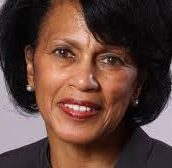In This Article
Bachelor’s Degree in Nursing (BSN)
- BSN Overview
- Career Paths
- Online Degrees
- Salary
- LPN-to-BSN Programs
- ADN-to-BSN Programs
- RN-to-BSN Programs
Accelerated Nursing Programs
Read facts and advice from nurses who enrolled in Accelerated Nursing Programs.
A BSN can lead to many career paths
What can you do with a BSN? Probably a lot more than you know.
A Bachelor of Science in Nursing has become the gold standard for nurses, opening the door to a slew of career options.
Despite significant job growth in nursing, record college enrollment and a growing interest by millennials in the profession, there’s a severe shortage of nurses in the U.S. This is partly due to the nation’s aging baby boomers and the growing care that many need.
“Nursing is one of the most in-demand professions today and one of the most trusted professions in America,” said Joseph Dunmire, a board member of the National Association for Health Care Recruitment (NAHCR).
BSN nursing career paths are broad, from working on the front lines in an emergency room to caring for specific populations such as children or the elderly. And because they have more education than other nurses, they generally have more responsibility, are more likely to be in supervisory roles, are more sought-after, and earn more than nurses with lesser degrees.
Nurses with BSNs have a broad range of career options, from working on the frontlines in the ER to caring for specific populations such as children or the elderly.
Whatever career path you choose, all BSN degree-holders have a similar mission. “When it comes to patient care, our job as nurses is to accompany the patient and the family on the journey. That’s who we are,” said Beverly Malone, PhD, RN, FAAN, and CEO of the National League of Nursing (NLN). “We are with the patient from cradle to grave. Every step of the way, there is a nurse. I don’t think there is any higher honor than being able to accompany people—children, adults and seniors—on their journey.”
BSN career paths and workplaces
There are an amazing number of career specialties for RNs with a BSN. Many require certification attesting to a nurse’s expertise. What you choose could determine where you work, from a regional trauma center to a rural hospital and more.
Here’s a sampling of careers to give you an idea of what’s out there.
Critical Care Nurse
Who this job is best for: Problem solvers and cool heads. Critical care nurses must be able to perform complex patient assessments, implement intensive interventions and therapies, and monitor patients—all while remaining calm in sometimes chaotic, life-threatening situations
What you’ll do: Provide direct care to acutely or critically ill patients, many of whom have life-threatening health issues
Where you’ll work: Typically in hospitals, managed care centers, and skilled nursing facilities in areas such as intensive care, cardiac care, burn units, trauma units, and critical care transport/flight units. According to the Association of Critical Care Nurses (ACCN), 37% of nurses who work in hospitals in the U.S. are critical care nurses, and Zippia’s 2021 data reports that there are 59,986 critical care nurses currently employed in the United States
Related certification: In addition to a BSN, you may need certification if you specialize in a certain type of critical care, such as Acute/Critical Care Nursing (Adult) or Acute/Critical Care Nursing (Pediatrics)
Nurse Navigator
Who this job is best for: Adept managers and those with good people skills to help guide patients through the healthcare system
What you’ll do: Help people with chronic and life-threatening illnesses navigate services for specific procedures and care involving organ transplants, cancer and other conditions
Where you’ll work: Mainly in hospitals or for healthcare systems and physician groups
Related certification: Oncology Nurse Navigator–Certified Generalist
Pediatric Nurse
Who this job is best for: People with an affinity for children and their families
What you’ll do: Physical examinations, measure vital statistics, take blood and urine samples, and order diagnostic tests for children ranging from birth through the late teens
Where you’ll work: Hospitals, urgent care clinics, and physician offices
Related certification: Certified Pediatric Nurse
Charge Nurse
Who this job is best for: Someone with strong leadership, organizational, multi-tasking, and communication skills
What you’ll do: Serve as a shift nurse in charge of a unit or floor in a hospital or other healthcare facility while still performing many of the same tasks as other nurses
Where you’ll work: Hospitals and clinics
Related certification: None specifically for charge nurses, but they may need certification if they work in specialty units, such as maternity or oncology
Psychiatric Nurse
Who this job is best for: Those with empathy and good listening skills, coupled with a talent for insightful assessment of complex situations
What you’ll do: Care for patients receiving treatment for a variety of mental illnesses, addiction, eating disorders, or substance abuse. Patients with psychiatric disorders require a great deal of emotional support, education, and therapy from skilled mental health professionals, including nurses
Where you’ll work: Hospitals, private practices, mental health facilities, community clinics, schools, correctional facilities, and long-term care facilities
Related certification: Psychiatric–Mental Health Nursing Certification
Trauma Nurse
Who this job is best for: Those who remain calm under pressure, can manage multiple priorities and tasks, and quickly provide and follow instructions
What you’ll do: Stabilize and care for patients with serious to life-threatening injuries, both accidental and intentional. Common patients include those with stabbings, gunshot wounds, and workplace injuries
Where you’ll work: Typically regional trauma centers and university medical centers
Related certification: Trauma Certified Registered Nurse Certification
Emergency Room Nurse
Who this job is best for: Quick thinkers and decision-makers, multi-taskers, and those undaunted by chaos and a fast pace
What you’ll do: Work with a team that includes physicians and medical technicians to accurately assess, stabilize, and triage patients
Where you’ll work: Regional trauma centers or emergency departments within smaller hospitals
Related certification: Certified Emergency Nurse Certification
Staff Nurse (Hospital)
Who this job is best for: Generalists, those who like variety and know a lot about many things
What you’ll do: Work in areas where patients are recovering from surgery or a serious but not life-threatening condition or illness. Staff nurses are attentive to changes in a patient’s condition, monitor them for comfort, dispense medication, check vitals, update family members, and provide discharge instructions
Where you’ll work: Hospitals
Related certification: None specifically for staff nurses; however, some pursue certification in specialties, such as medical-surgical or pediatrics
Nurse Case Manager
Who this job is best for: Good communicators, organizers, and project managers who can navigate complex interactions with care teams, patients, families, and insurance companies
What you’ll do: Coordinate overall care and a range of services for patients, both in and out of medical facilities, and act as the patient’s advocate
Where you’ll work: Varied settings, including hospitals, insurance companies, clinics, private practices, nursing homes, and hospice care
Related certification: Nursing Case Management Certification and training in a health or human services field such as social work or behavioral health
Public Health Nurse
Who this job is best for: People interested in education, advocacy, and activism. While most nurses care for one patient at a time, public health nurses focus on entire populations and communities
What you’ll do: Educate communities, encourage preventive action, and help people get access to healthcare in the face of threats to public health (such as global pandemics and significant flu outbreaks)
Where you’ll work: Federal government, state and county health departments, correctional facilities, schools, and health agencies
Related certification: Certified in Public Health credential
Specialization and certification
There are around 75 accredited specialty certification programs that the American Board has approved for Specialty Nursing Certifications (ABSNC), and other professional and academic organizations certify specialties as well.
While usually not mandatory—and sometimes not available—for new RNs, certification in a chosen specialty can enhance a resume and appeal to prospective employers. In jobs that are key clinical or leadership positions, employers often stipulate preferences and requirements for specialty certifications.
As an example of the type of certification available and the requirements to apply for it, to become a psychiatric nurse, a BSN must have:
BSNs with a combination of solid experience and board certification generally earn more than RNs.
Once an RN meets those criteria, they can take the test for Psychiatric-Mental Health Nursing Certification. Once they pass the test, they are awarded the credential Registered Nurse-Board Certified (RN-BC).
Certification may help you get the job you want: BSNs with a combination of solid experience and board certification generally earn more than other RNs.
How to advance your career with a BSN
With a potential change to education requirements for RNs under scrutiny for the future, earning a BSN could be a potentially wise move. Having an ADN is the current standard, but a BSN has been proposed as the new base requirement.
In fact, the National Advisory Council on Nurse Education and Practice (NACNEP) has called for at least two-thirds of the nurse workforce to hold bachelor’s or higher degrees in nursing. As of 2021, 56% of nurses held a BSN or higher but there are other ways to advance your career:
- Continuing education: RNs must take a minimum number of continuing education units (CEUs) each year to maintain their license. However, many nurses take classes to hone their skills—or learn new skills entirely. Nurses can use their continued education coursework to boost their BSN career opportunities.
- Accelerated programs, such as RN-to-BSN: Mostly targeted toward working nurses, RN-to-BSN bridge programs are for nurses who already hold an ADN and want to apply it toward a bachelor’s. These bridge programs allow you to apply past education and work experience toward BSN credits. This can shorten the time dedicated toward earning a BSN and lower the expense of a bachelor’s degree program. For working LPNs that don’t hold a BSN degree, there are LPN-to-BSN bridge programs available.
- Earn you degree online: It’s never been easier to advance your education with the proliferation of online education, and earning your BSN online is no exception.
What can I expect to earn?
The median salary for an RN was $86,070, according to the 2023 Bureau of Labor Statistics data. But salaries vary widely nationally and depend on many factors, including your education, experience, where you live, where you work and the position you hold.
For example, RNs working in outpatient care facilities earn an average of $102,640, while nurses in general medical and surgical hospitals earn an average of $96,830.
Here are median annual salaries for registered nurses by state:
If you have the option of moving, do your research and decide whether the differential in average earnings is worth a move. In the meantime, wherever you currently live or work, you may be able to boost your earnings with a BSN degree.

With professional insight from:

Board Member, National Association for Health Care Recruitment (NAHCR); and Vice President—Workforce Solutions, Qualivis

CEO, National League for Nursing



